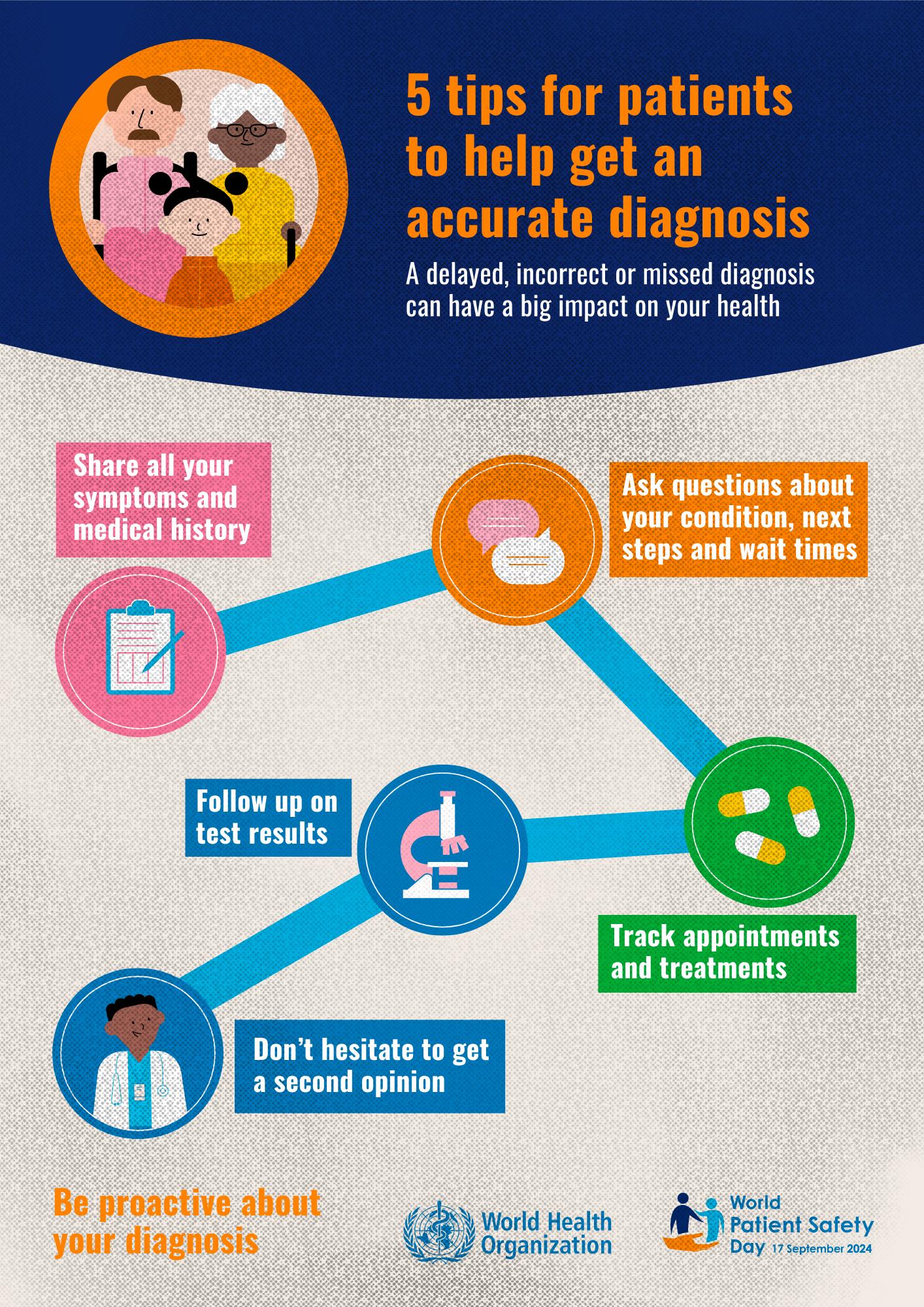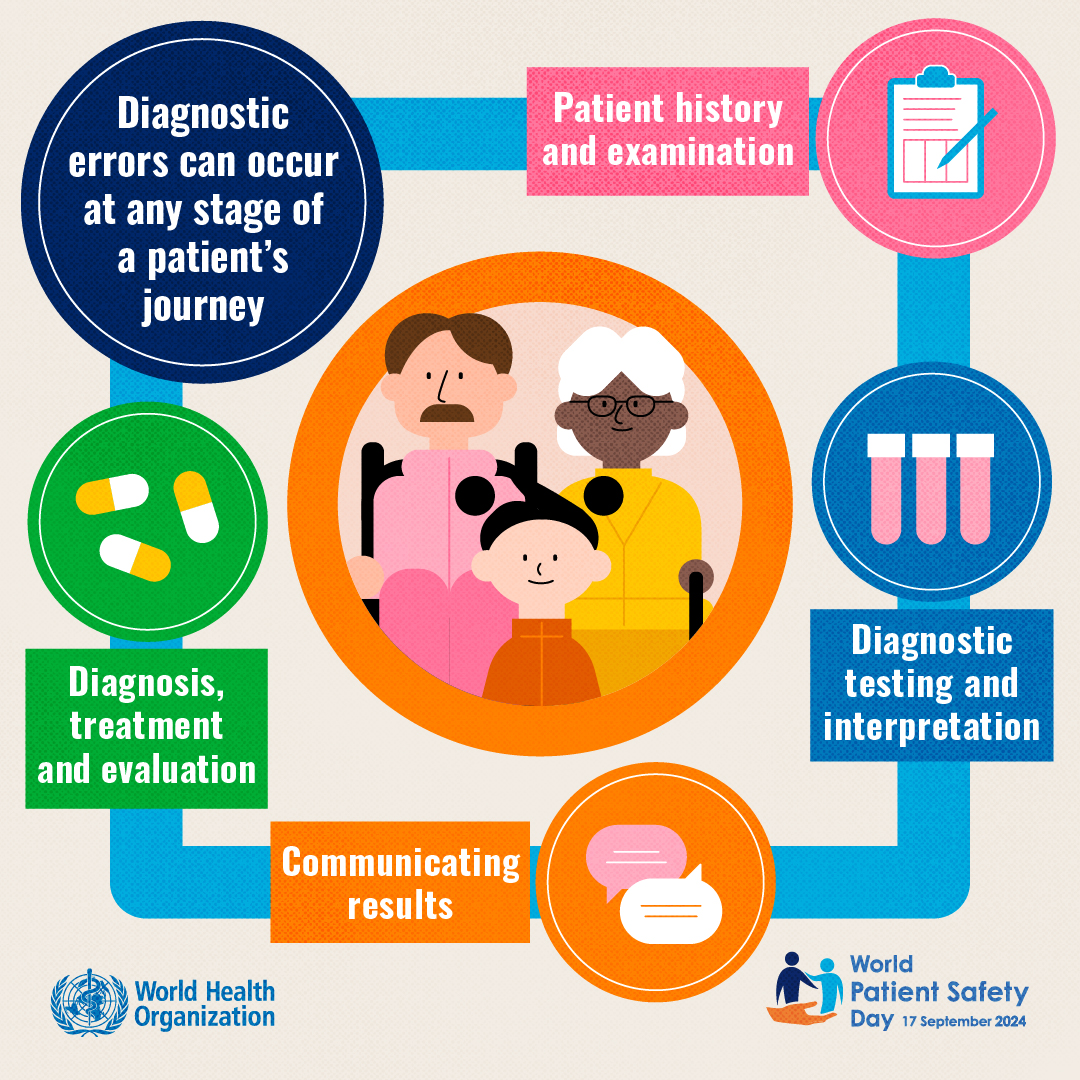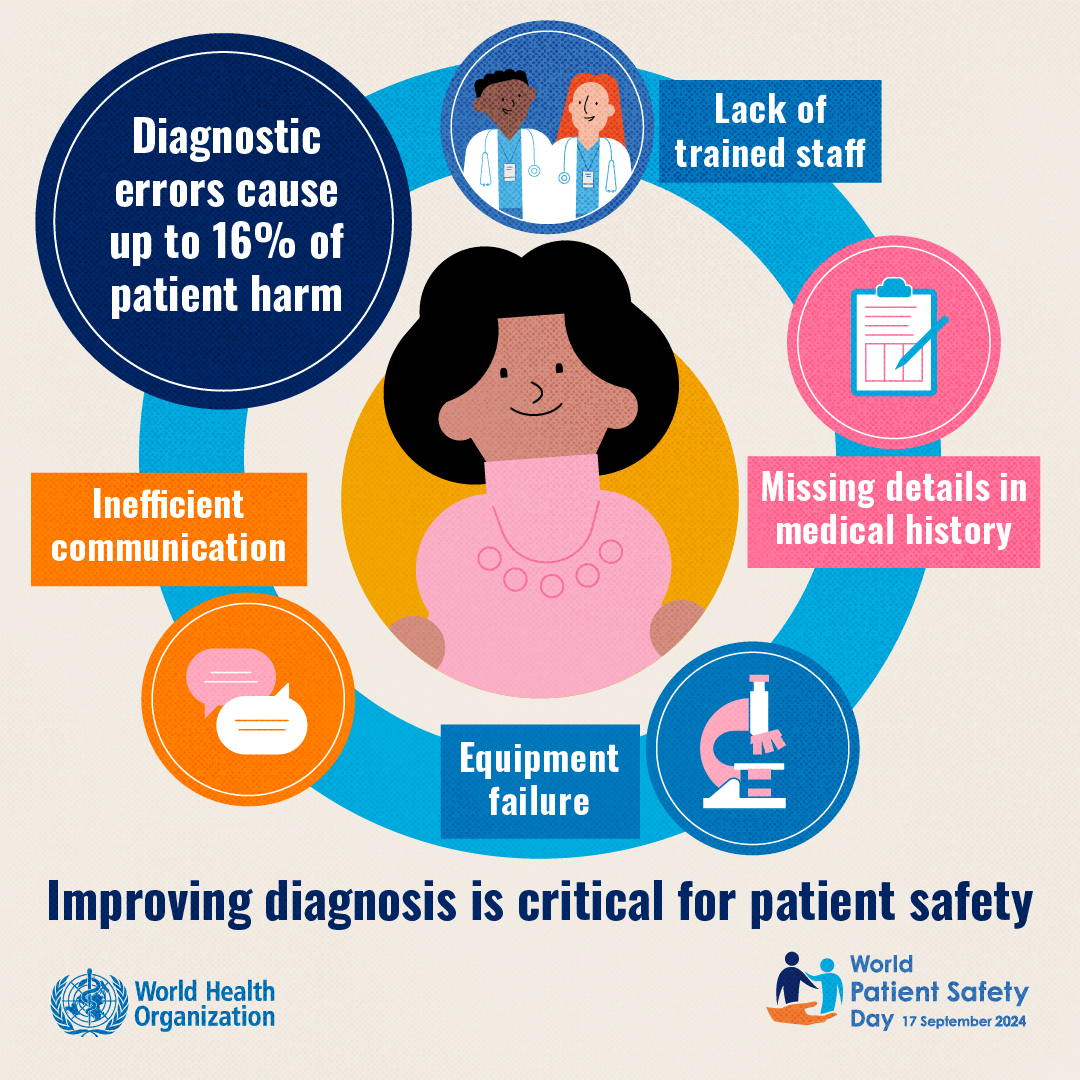#WPSD2024 Resources
Use these resources to support a safe diagnosis
We chose a few resources to help you or your loved one achieve a safe diagnosis. We’re highlighting these points (building on the 5 tips offered by the World Health Organization):
- Keep notes about your health, medication, and symptoms to share with the care team.
- Bring someone with you to appointments to ask questions, look over choices, and help you understand the diagnosis
- Keep track of all documents, tests, and appointments to check they’re correct and that you understand next steps
- Be active in follow-up and deciding your care or health plan.
- Ask if you can have a second review of things.
If you have concerns or experience harm, ask how you can report the incident and what happens after. This is an important step in learning from the incident and ensuring safer diagnosis for others.
It is known that some people or groups are more at risk of diagnosis harm because they don’t have access to tests and treatments. We hope the resources linked below can support everyone.

The value of using a checklist and symptom tracker
A tool like the symptom tracker will help you remember and provide your healthcare team with the information they need for a safe diagnosis. You are the expert on you. Show it by preparing for your healthcare visit. Use a health checklist to note what matters to you.
It’s safe to ask questions about your care. If you don’t understand what your health care team is telling you, ask them to explain it slowly, in a way you can understand. Maybe they can show you a picture or a model. Ask for someone to help translate if needed and for permission to record the appointment.
Access to the right tests and treatments at the right time is key for diagnosis safety. Have a talk about risks, harms, and benefits.
The “talk to your doctor” resource offers tips on how to explain your concerns and symptoms and questions to ask in certain situations. Be part of all decisions about your care and health. See “know your health plan” for advice. This toolkit has some useful “tips for talking to your healthcare team”.

Learn about warning signs of your health getting worse
Family and other caregivers are in a good position to spot slight, yet important changes. This may point out that things are getting worse. You may not know what is wrong, but you know something just isn’t right. Learn about the warning signs that tell you when you or your loved one’s health is getting worse. If you see changes in your own or your loved one’s health, go to the hospital. If in hospital, tell your health care team. Talk in clear and simple ways (e.g., I am concerned about…, I am not comfortable with…, and I believe my/ my loved ones’ safety is at risk).
Diagnosis error can occur with even the most thorough healthcare team. Learn what happens when something goes wrong and the ways for you to report an incident, safety concern, experience, or opinion.
Your experience is evidence
Patients and families provide a key piece of the puzzle for diagnosis safety adds to the know-how of care providers. Together, as partners, you can take the learning from past harm and successes to improve safety across the healthcare system.

Acknowledgements
We are grateful to Shared Health Manitoba, Health Quality Council of Alberta, Choosing Wisely Canada, Healthcare Excellence Canada, and our many other partners who provided resources and guidance to support patients and family caregivers to be partners in diagnosis safety.
Tell us about the most helpful resources you’ve found at hello@patients4safety.ca or share them on social media using #patients4safety and #WPSD2024.
Resources
World Health Organization
Shared Health Manitoba:
- It’s Safe to Ask
- Self-Advocacy for Everyone (SAFE) Toolkit – Talk to your doctor guide and summary
- Patient Safety and Privacy (ensuring safety, reporting of critical incidents)
- Know Your Health Plan Toolkit
Healthcare Excellence Canada:
- Recognizing the Deteriorating Patient Condition – what the public needs to know
- The 10 Warning Signs of a Rapidly Deteriorating Patient
Choosing Wisely Canada:
- Quality Improvement Ideas (in partnership with the Ontario Medical Association)
- Ask, Talk, Listen – Tips for Families & Patients
- Choosing Wisely Patient Resources
- Long Term Care
- Colonoscopy
Health Quality Council of Alberta:
- HQCA Tips for Talking to your Health Care Team
- Symptom Tracker
- Questions To Ask Your Healthcare Team
- Working With Your Patients
Canadian Medical Association
- Preventative Care Recommendations to Promote Health Equity
Imagine Citizens
Agency for Healthcare Research and Quality – US
Centre for Quality Improvement and Patient Safety
- Patients as Partners in Diagnostic Safety Webinar, Feb. 21/23
Institute for Health Information – US
The Leapfrog Group, Gordon and Betty Moore Foundation, Society to Improve Diagnosis in Medicine


